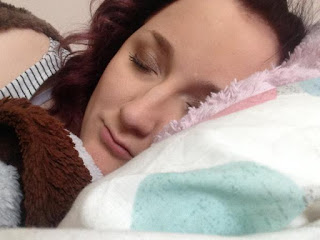For the first time in my blogging career; I attended an event and barely struggled and didn't self-harm. It wasn't even an 'event'! It was a three day event! And not only did I participate in everything, but I also enjoyed it and went home tired but with a smile on my face every day. (To read about the event I'm talking about go here, here and here!)
Here's how...
1. Sleep well: Rather than thinking 'it's far too early to go to bed,' I went to bed. It was weird; especially with the light nights but I allowed myself to sleep once I was ready to. I made myself aware of the time I'd have to wake up the next morning and ensure I had at least 8 hours of sleep.
3. Drink well: I'm never a big water drinker but I find that if I don't drink enough I get really bad headaches, which also affect my mood and mental health. And headaches also render my useless; I'm not in the mood to do anything. So, I drank at least three bottles of water a day and a member of staff offered to go and steal me lots of bottles so I had them all at my desk. I usually drink a lot of diet coke but this can dehydrate you so I avoided it.
4. Medicate well: I'm one of those mental health patients who is given a truck load of medication but avoids using any of it at all costs. Sometimes, this is a good thing as it allows me the opportunity to discover other coping strategies. It can also be a bad thing as it means sometimes an issue will get out of hand e.g. hallucinations and if I'd just taken some medication at the first hint of voices then I'd have avoided everything that follows. This, is what I do for events/work. The slightest sign of anything and I take medication that will help. This varies from anti-psychotics for hallucinations to anti-sickness tablets for nausea and travel sickness.
5. Motivate well: When you're getting tired and are struggling - mentally or physically - to continue working, it's always helpful to have a motivation; a reason to continue. To keep going. To keep trying. On my first day, to go to the training; my motivation was my plan to show people the kind of preparation that goes into events and the work those who volunteer do. On my first day, I was excited to see what the event was like and looking forward to managing the organisation's Twitter account. I went into the second day excited to meet the second founder of SoMe with the knowledge that it would mean we could discuss working together in the future. And when the second day got tough and tiring, I thought of the fact that once it was done, I could home and rest for two days!





